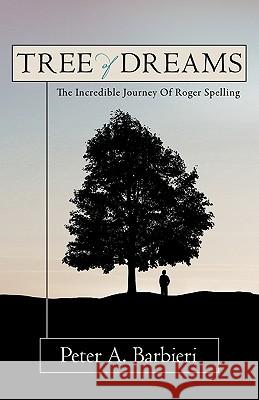Tree Of Dreams: The Incredible Journey Of Roger Spelling » książka
Tree Of Dreams: The Incredible Journey Of Roger Spelling
ISBN-13: 9781440127168 / Angielski / Miękka / 2009 / 340 str.
In a rich and multi-layered debut novel, Tree of Dreams, Peter Barbieri extends New American Realism into the spiritual and fantastical realms. As the poet Eli Siegel says, "There are millions of men in the world, and each is one man, each is one man by himself, taking care of himself all the time, and changing other men and being changed by them . . ." Such is Barbieri's conflicted character, ROGER SPELLING.
In a quest as old as war itself, Roger returns from military service profoundly affected by what he has experienced. He is not well. He acknowledges his deteriorating mental condition, and in an effort of will, decides to write about his experience. "Either a man has quit or he has gone forward," says William Carlos Williams. Roger moves forward with a novel, which, he believes, will take him to the root of his struggle. And with him, we begin to change.
Roger's writing experience provokes a disturbing relationship with his twin sister Katherine. The resulting anxiety deepens Roger's illness; he is institutionalized. Nonetheless, Roger's labyrinthine journey continues. In a psychotic, dream-like state, Roger encounters an 18th Century relative who explains, "People only wake up when they become thoroughly exhaust-ed, thor-oughly tired of the nonsense." Eight generations of Roger's ancestry appear, disappear, connect the fragments of his existence, and tell us something about him and ourselves in the process.
Tree of Dreams is an evolution of consciousness that moves beyond perception and the fiction of time to a place where all events are simultaneous, where reality is richer than we have the right to expect, where lives are joined in unimagined ways. "In every illusion," as Eli Siegel says, "there must be something which isn't illusion," and "The world is waiting to be known . . . the past is in it."
Roger Spelling is an ordinary man. Peter Barbieri demonstrates how extraordinary this truly is."











